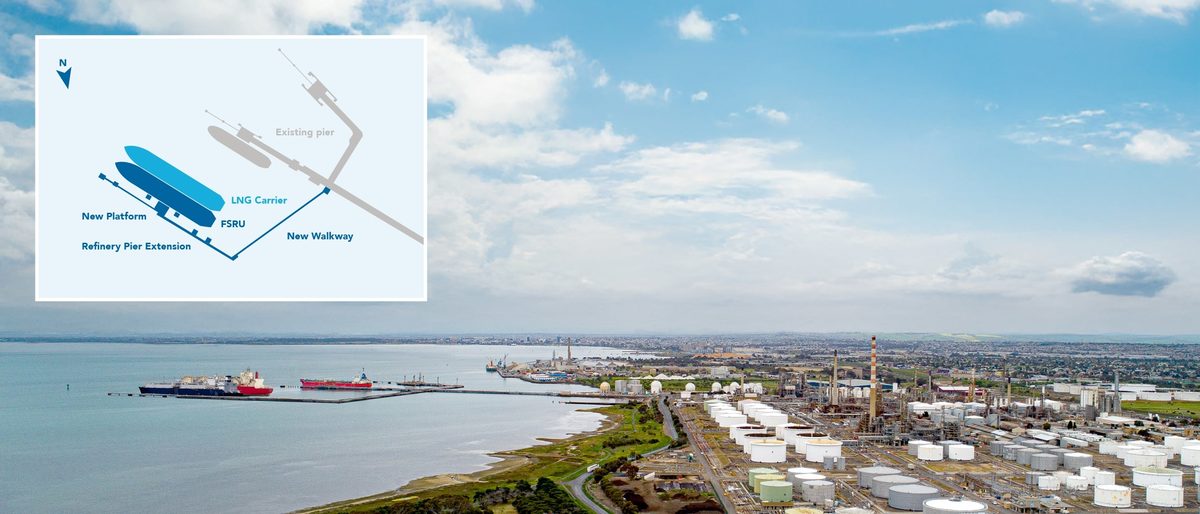Viva Energy primed for major investment in Geelong

As part of the package, Viva Energy will commit to keep its Geelong operations running until at least mid-2027, with a further three-year option. Photo: JAMES TAYLOR
VIVA Energy will push ahead with major investments at its Geelong refinery following a Coalition Government commitment of as much as $2 billion to ensure Australia’s long-term fuel security.
As part of the Federal 2021-22 Budget, initiatives include a variable Fuel Security Service Payment (FSSP) to the refineries, which recognises the fuel security benefits refineries provide to all Australians; up to $302 million in support for major refinery infrastructure upgrades to help refiners bring forward the production of better-quality fuels such as ultra-low sulphur gasoline (LSG) from 2027 to 2024; and $50.7 million for the implementation and monitoring of the FSSP and the minimum stockholding obligation.
According to a media release from Minister for Energy and Emissions Reduction Angus Taylor on Monday this week, the FSSP has been costed up to $2.047 billion to 2030 in a “worst-case scenario”, but actual payments are expected to be lower as they will be linked to refining margins at the time and to the actual production of gasoline, jet and diesel fuels.
As part of the fuel security package (FSP), Viva Energy will make a six-year commitment to maintaining its refining operations through to June 30, 2027, with a further three-year option to extend until June 30, 2030.
Viva Energy chief executive officer and managing director, Scott Wyatt, said Monday’s announcement provided important and welcome structural support to Australia’s refining sector.
He said the Geelong operations had a cash loss of more than $200 million in the 2019-20 financial year and continued operations “would not have been sustainable” without the support of the federal government.
“This could have seen the loss of over 700 direct jobs, the loss of the last major manufacturing operations in Geelong, and a significant contributor to the Victorian economy,” Mr Wyatt said.
“Critically, the structure of the FSP allows us to commit to the necessary and significant capital program through the package’s life cycle.
“The structure of the FSSP is not designed to underpin or support profits of Geelong, but rather to mitigate some of the downside risk of low refining margin cycles, to which Australian refineries are exposed outside of their control.”
He said reducing this risk allowed Viva to proceed with greater confidence, as it sought to invest in the future of the Geelong site.
“This confidence supports our vision for the Geelong Energy Hub, to transition the refining site to multiple sources of energy, as we participate in the longer-term goal of energy transition to a lower carbon economy,” Mr Wyatt said.
“Coupled with this is a commitment to improved fuel standards, through the advancement of ultra-LSG fuel specifications, and working towards further harmonisation to Euro 63 vehicle emission standards.
“We now look forward to a period of substantial investment in Geelong, providing an exciting period in the site’s history.”
Viva notes the final FSP remains subject to legislative approval, and will not formally commit to the package until the preparation and adoption of the necessary regulatory and contractual mechanisms to implement the package.

















